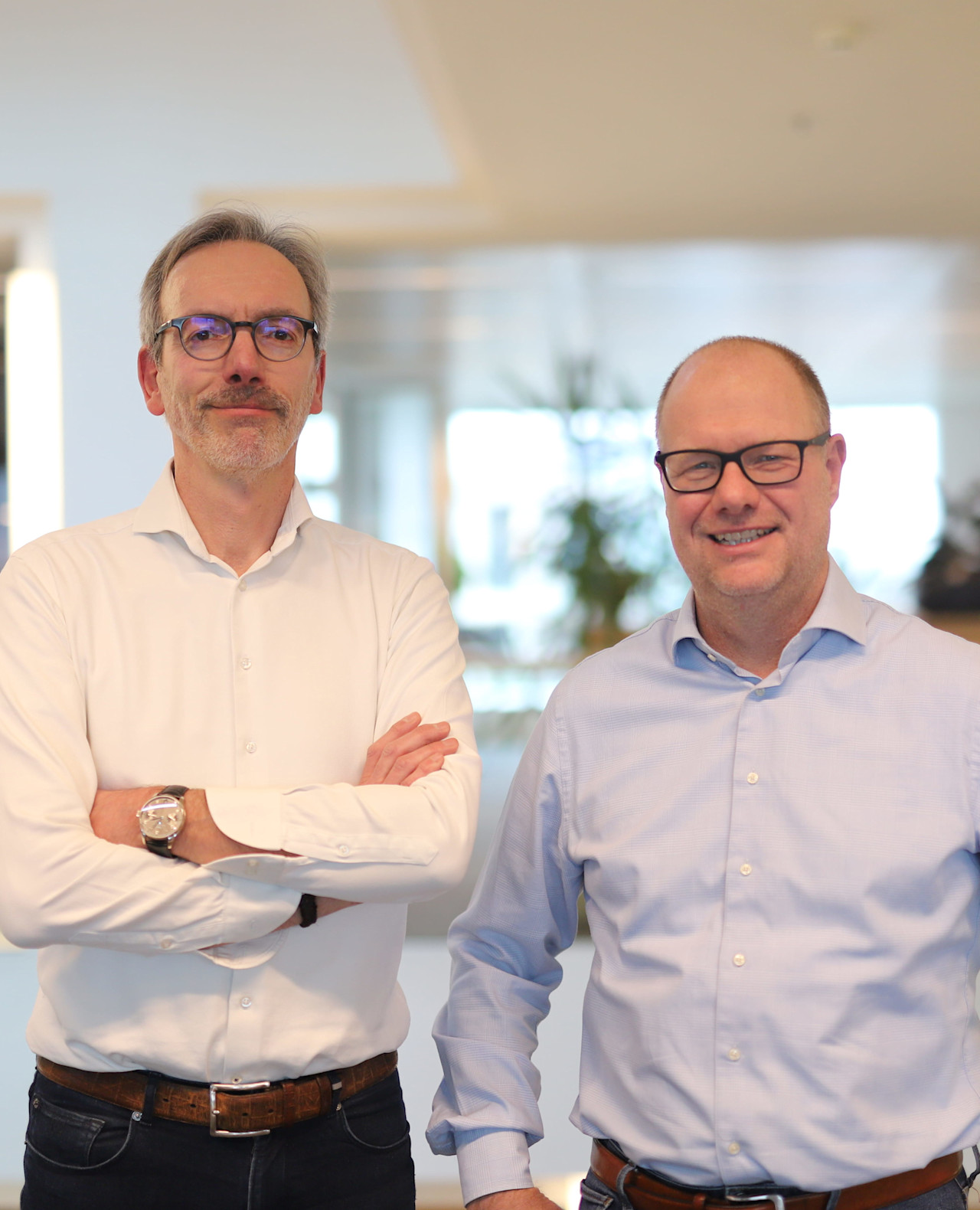

A bevy of black swans: Surprises that could derail the 2023 outlook
Investors are looking forward to a new year that has one redeeming quality – it doesn’t mirror the annus horribilis of 2022. Robeco’s outlook for ‘short-term pain, long-term gain’ warns that 2023 is likely to see recession, and that investors need to wait for inflation, interest rates and US dollar strength all to peak before the good times resume.
まとめ
- Targets for inflation and interest rates offer room for upsets
- Potential for a Ukraine peace dividend and net-zero investments
- A wary eye on social media, regime changes and fragile markets
The current consensus isn’t that rosy, but if history tells us anything, it’s that nothing is ever set in stone. So, what are the possible events – good and bad – that could derail these central scenarios? As we enter 2023, the Robeco Sustainable Multi-Asset Solutions team outlines 10 potential black swans, and what the consequences may be.
The first is ‘Goldilocks’ revenge’ – the economic porridge won’t be too hot or too cold but just right. “Here, US inflation peaks without a recession, the dollar drops, and the US Federal Reserve (Fed) can rest easy but remain vigilant,” says Colin Graham, Head of Multi-Asset Strategies at Robeco.
“The post-Covid fiscal expansion slows, acting as the brake on excess demand. The result for multi-asset investors is that high yield bonds become very attractive as default rate expectations fall.”
2. Panic stations
Alternatively, the Fed could tire of low long-term rates and review its inflation target, citing a structural break with the previous regime that had largely been in place since the global financial crisis.
“It could claim that the 2% target is far too close to zero, saying the next recession could tip the economy into outright deflation,” Graham says. “The result would be panic, and bonds denominated in US dollars would see negative returns for the third year in a row.”
3. Deflation disaster
Even worse is the prospect of deflation. While falling prices sounds great, it means consumers would not buy anything as they expect goods to become cheaper in the short term, leading to outright recession.
“Here, if deflation has a higher number of hits than inflation according to newsflow data from Wall street and Main Street, it means that central banks are driving the economy using the rear view mirror, causing a major bust,” Graham says.
4. Greenwashing and now impact washing
The drive to improve the environmental, social and governance (ESG) characteristics of companies has enormously gained in importance, and is the bedrock of investments at Robeco. The problem is that it has also led to a rise in greenwashing, where companies and investors make ESG claims that cannot be substantiated, often for PR and marketing reasons.
Another growing problem is impact washing, where companies or investors claim to be making an impact on the ground, when proving or even measuring it is doubtful.
“We see the potential for sustainability claims to be more strongly scrutinised by regulators, media and investors, and as a result, large financial institutions will struggle to evidence their sustainability credentials across facets of their businesses,” Graham says.
“Rather than focussing on improving their ESG and delivering shareholder value, companies could end up selling or divesting businesses that don’t meet ESG criteria and withdraw from markets where regulators demand higher sustainability credentials.”
5. Rewards for risk
One lesser-known issue concerns risk appetite, where multi-asset investors are asked to state the level of risk that they can tolerate. These risk profile funds are usually labeled as ‘cautious’ – i.e. low risk, focusing on safer government bonds; ‘balanced’ funds that offer more of a mix of bonds and equities; or ‘aggressive’ funds that may well allocate to much riskier stocks.
The problem here is that in 2022, there was little difference between any of them. “The performance of these profiles was within 20 basis points (in euro terms) by the end of December,” says Graham. “If this happens again in 2023, the implication would be we would see a second year of negative returns in balanced funds, similar to the experience following the tech bubble burst of 2001-2002.”
最新のインサイトを受け取る
投資に関する最新情報や専門家の分析を盛り込んだニュースレター(英文)を定期的にお届けします。
6. Give peace a chance
But it’s not all bad news. Much of the consensus opinion assumes that the war in Ukraine which caused so much volatility in markets in 2022 and sparked major inflation across the world will continue. If peace breaks out, a more welcome disruption would occur.
“We could see a peace dividend in which Ukraine secures its borders with European ‘aid’ and the flow of wheat, oil and gas resumes, ending the bottlenecks,” Graham says. “Other countries would then relax their travel and trade restrictions, allowing inflation to fall and supply chains to re-shore faster. There would be an energy costs windfall for global economies, especially in Europe.”
7. Anti-social media
Social media is another battleground, albeit where the participants are armed with words rather than weapons. Stricter regulation against the tech titans that fueled growth stocks could benefit value stocks instead.
“We could see another backlash against social media and more regulation on large technology and social media platforms as data protection issues come to the fore again,” says Graham. “The result would be a change in equity market leadership – value companies with capital discipline and quality earnings would be more highly rewarded on a relative basis.”
8. Shock regime change
Then there is the possibility of a ‘shock regime change’, as witnessed when the UK which went through three prime ministers in 2022. “This is the first year this century without an election in a G7 country,” says Graham.
“However, we could see a major shift in policy as a ‘major’ regime topples, as witnessed with Boris Johnson and then Liz Truss a month later, resulting in major volatility spikes.”
9. Upsetting the applecart
Truss’s brief prime ministership and a disastrous mini-Budget which forced the Bank of England to take emergency measures to protect the pensions industry showed just how fragile certain financial systems can still be.
“In this scenario, private assets see a liquidity drain, liability-driven investment (LDI) structures are questioned, and there is increased scrutiny on banks following a crypto bust,” says Graham. “This would expose investments that were only funded because cash was ‘free’ at the time.”
10. Net-zero upside
Finally, the commitment to moving to a net-zero economy could surprise on the upside. “There can be no backtracking on climate: the evidence about climate change continues to mount, and COP27 highlighted that political will is key to shaping the balance between climate ambition and implementation,” Graham says.
“In the long run, achieving energy security means investing more in green technologies and climate solutions to close the gap between ambition and implementation. We could see a multinational ‘super fund’ set up to facilitate the net zero transition, backed by several governments.”
Staying contrarian
“No-one has that illusive crystal ball that can provide perfect foresight on events that affect market returns, and even if we did, then recent history shows that investors can still infer the wrong market reaction.”
“At Robeco, the Sustainable Multi-Asset Solutions team is prepared for another turbulent year and plans to invest with a contrarian mindset, which added value in 2022. We are also firm believers that the climate battle and sustainability transition will reaccelerate.”
重要事項
当資料は情報提供を目的として、Robeco Institutional Asset Management B.V.が作成した英文資料、もしくはその英文資料をロベコ・ジャパン株式会社が翻訳したものです。資料中の個別の金融商品の売買の勧誘や推奨等を目的とするものではありません。記載された情報は十分信頼できるものであると考えておりますが、その正確性、完全性を保証するものではありません。意見や見通しはあくまで作成日における弊社の判断に基づくものであり、今後予告なしに変更されることがあります。運用状況、市場動向、意見等は、過去の一時点あるいは過去の一定期間についてのものであり、過去の実績は将来の運用成果を保証または示唆するものではありません。また、記載された投資方針・戦略等は全ての投資家の皆様に適合するとは限りません。当資料は法律、税務、会計面での助言の提供を意図するものではありません。 ご契約に際しては、必要に応じ専門家にご相談の上、最終的なご判断はお客様ご自身でなさるようお願い致します。 運用を行う資産の評価額は、組入有価証券等の価格、金融市場の相場や金利等の変動、及び組入有価証券の発行体の財務状況による信用力等の影響を受けて変動します。また、外貨建資産に投資する場合は為替変動の影響も受けます。運用によって生じた損益は、全て投資家の皆様に帰属します。したがって投資元本や一定の運用成果が保証されているものではなく、投資元本を上回る損失を被ることがあります。弊社が行う金融商品取引業に係る手数料または報酬は、締結される契約の種類や契約資産額により異なるため、当資料において記載せず別途ご提示させて頂く場合があります。具体的な手数料または報酬の金額・計算方法につきましては弊社担当者へお問合せください。 当資料及び記載されている情報、商品に関する権利は弊社に帰属します。したがって、弊社の書面による同意なくしてその全部もしくは一部を複製またはその他の方法で配布することはご遠慮ください。 商号等: ロベコ・ジャパン株式会社 金融商品取引業者 関東財務局長(金商)第2780号 加入協会: 一般社団法人 日本投資顧問業協会





















